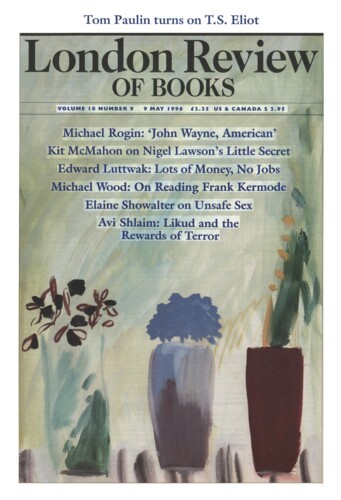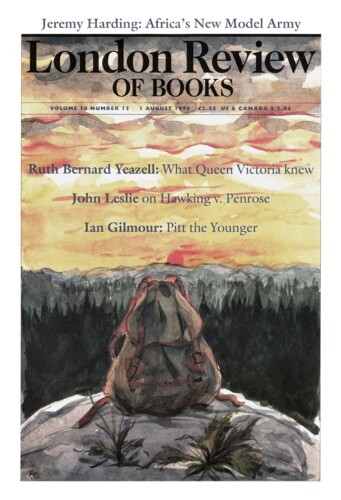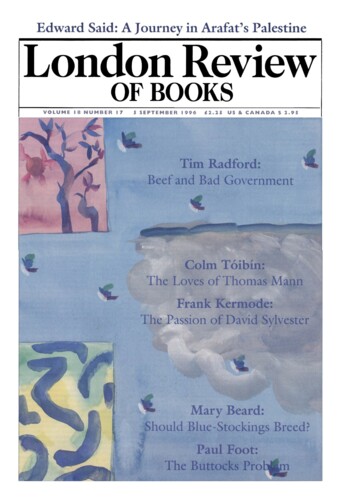How Dirty Harry beat the Ringo Kid
Michael Rogin, 9 May 1996
There he stands, mounted on a pedestal, booted, spurred and bigger than life, his enormous, holstered six-shooter set just below the eye-level of passers-by, welcoming travellers to Orange County. He used to straddle the entrance to the John Wayne International Airport; now, so as not to suffer the weatherbeaten fate of the original, the cowboy statue has sought protection from the elements and taken shelter indoors. Florence has David, also transferred from open to inner space; Orange County has John Wayne.




